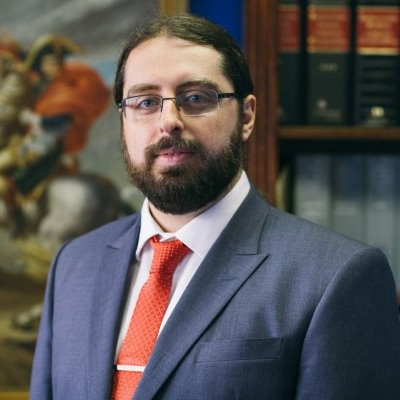
News

Part hate, part love: Evaluating the new Hate Speech Bill
MARK OPPENHEIMER
Two years ago, civil society organisations made more than seventy thousand submissions on the original draft. Many of the submissions argued that the draconian legislation would prohibit more than genuine hate speech, and would be a serious infringement on the constitutional right to freedom of expression. Before critiquing the old bill and evaluating the new one, we need to understand the true ambit of free speech.
Our courts have held that, “In a free society, all freedoms are important, but they are not equally important. Political philosophers are agreed about the primacy of the freedom of speech. It is the freedom upon which all the other freedoms depend; it is the freedom without which the others would not long endure.
“Under the new constitutional dispensation in this country, expressive activity is prima facie protected, no matter how repulsive, degrading, offensive or unacceptable society, or the majority of society, might consider it to be.
“What is not protected by the Constitution is expression or speech that amounts to ‘advocacy of hatred’, that is based on… race, ethnicity, gender, or religion, and which amounts to ‘incitement to cause harm’.”
Vulnerable groups are entitled to protection from people who incite harm and violence against them by means of hateful language. No society can tolerate genuine hate speech, and none defends such speech by invoking the right to free expression. Given that so much depends on how we understand the term, it’s vital that we get the definition right.
The old Bill
The prior draft prohibited speech that was merely insulting or intended to make fun of people. Telling jokes about lawyers and politicians could have resulted in imprisonment. The definition would also have prohibited certain religious teachings.
No distinction was drawn between the perpetrators of genuine hate speech, and those reporting on that speech. A demagogue inciting hatred and violence against an ethnic group would have been as liable as the journalist writing about the incident.
To prosecute a person for hate speech, the National Director of Public Prosecutions (NDPP) had to grant authorisation. Prominent academic Lene Johannessen has written that “Prosecutorial discretion has often been used to prosecute minorities and other victims of racism, rather than to protect such victims from further insult. In England, the first individuals prosecuted under the Race Relations Act were black power leaders, and the law has subsequently been used more frequently to curb the speech of racial minorities and other activists than to limit the expression of racists.”
The new Bill
The new draft retains this defect, but requires the NDPP to issue directives which state the circumstances in which a charge of hate speech may be withdrawn, or a prosecution stopped.
Revised definition
Any person who intentionally publishes, propagates, or advocates anything, or communicates to one or more persons in a manner that could reasonably be construed to demonstrate a clear intention to: be harmful or to incite harm, or to promote or propagate hatred, based on one or more of the following grounds: age; albinism; birth; colour; culture; disability; ethnic or social origin; gender or gender identity; HIV status; language; nationality; migrant or refugee status; race; religion; sex, which includes intersex or sexual orientation, is guilty of an offence of hate speech.
The new definition has some similarities with the wording used in the Constitution, and is a vast improvement on the old definition. However, there are some issues worth drawing attention to.
First, the Constitution requires both incitement to harm and advocacy of hatred, while the Bill only requires one of these legs. However, an exemptions clause requires both legs to be met for bona fide artistic expressions, and the espousal of religious teachings, to constitute hate speech. This means these forms of expression are given extra protection. Stronger protections are granted to academic or scientific inquiry, or fair and accurate reporting in the public interest, which are excluded from the definition of hate speech.
Second, harm is defined in the Bill to include emotional, psychological, physical, social, or economic harm. The inclusion of emotional harm is a dramatic lowering of the threshold, and opens the door to the banning of merely offensive speech.
Third, the number of listed grounds exceeds the four original groups listed in the Constitution. Egalitarians will welcome the expansion of the categories, while others may be concerned that this erodes the territory of constitutionally protected speech. Under the new Bill, if you hurt your bobba’s feelings (emotional harm) by calling her an alte kakker (on grounds of age), you could be prosecuted for hate speech, and spend three years in jail.
In conclusion, the Bill creates severe criminal sanction for speech. It is an improvement on the prior draft, but it still punishes speech that has been afforded protection by the Constitution. Before enacting this legislation, we should remember a well-known Judge’s warning that, “to deny free speech to engineer social change in the hope of accomplishing a greater good for one section of our society erodes the freedoms of all”.
· Mark Oppenheimer is a practising advocate and member of the Johannesburg Bar.




